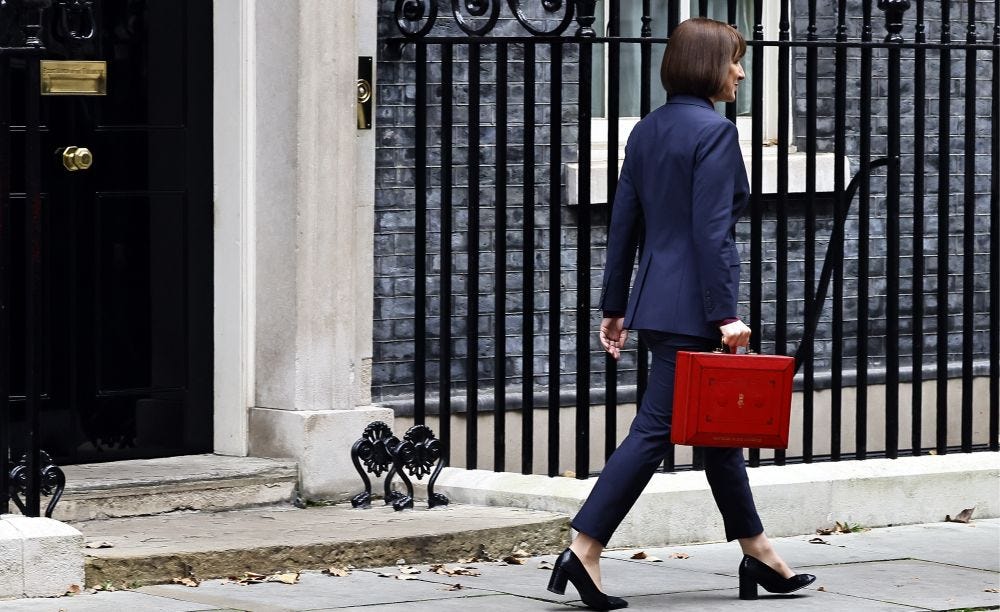Up the creek without a paddle?
Labour came into government promising to make economic growth its priority. But there’s precious little sign of it.
It has been a tough couple of weeks for Labour in general and the chancellor of the exchequer, Rachel Reeves, in particular. Just six months ago, Labour was celebrating an electoral landslide and Reeves was gloating about becoming the first female chancellor of the exchequer. This week, the main speculation was exactly when she would be following her Treasury colleague, Tulip Siddiq, out the door.
Last week, it became clear that the UK will have to pay more to persuade the markets to lend the government money. Interest rates on gilts – government bonds – rose even higher than during the short-lived administration of Liz Truss in autumn 2022. While many commentators have pointed to the incoming Trump administration and the prospect of higher tariffs on US imports, the UK does seem to be particularly badly affected.
The way out of the mess is to revive economic growth – not only a good thing in itself, but also a way of increasing tax revenues without burdening businesses and individuals even further. Labour ministers frequently claims that economic growth is the government’s top priority and they are bullish about having a ‘plan for growth’. The latest official statistics show that the economy is growing – but very slowly (just 0.1% in November) and slower than many forecasters were expecting. Inflation may have come in slightly lower than expected – which might give the Bank of England more room to cut interest rates this year. But retail sales were down in December when analysts had expected a Christmas bounce.
So, if there is a plan for growth, it’s not exactly going well. Indeed, at the end of last year, the government was looking for help for big ideas from, er, its own regulators. Instead of some economic ‘to infinity and beyond’, it’s starting to feel a lot like 1976, when another Labour government had to agree to austerity measures in exchange for an IMF loan.
All this spells trouble for the government. Reeves’s autumn statement is already looking out of date. Her ‘fiscal headroom’ is disappearing fast. This ‘headroom’ is in fact entirely a figment of her own targets – the government is still spending far more than it raises in taxation. But she set a target for how much she wanted to borrow and now looks to have blown it, with the Office for Budget Responsibility (OBR) set to pronounce on how realistic her plans are in March. But should the OBR, with a less-than-exemplary record on forecasting, really be given such a lofty position? Economists Catherine McBride and Vicky Pryce engaged in an entertaining and fascinating debate about this at the Battle of Ideas festival in October. Listen below or click here:
Another announcement this week was Keir Starmer launching the government’s AI Opportunities Action Plan. The UK, we were told, would go our own way on AI, creating our own models and creating a 20-fold increase in AI computing power under public control by 2030. (Given the huge amount of electricity that AI data centres use, this does sound at odds with the government’s other big mission, Net Zero.) The public sector will be transformed, it was claimed, by the rapid introduction of AI. But does the idea that AI will rapidly and massively increase productivity really make sense? That was interrogated in another lively debate at the Battle of Ideas festival. You can listen to it below or click here.




